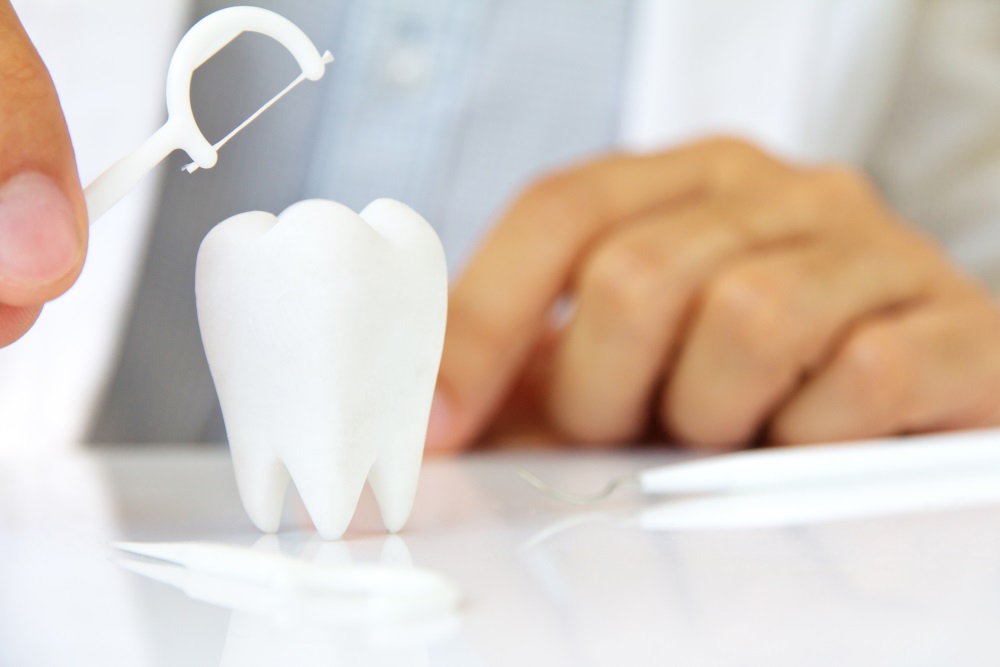The 2020 Resolution That Will Leave You Smiling
If you are anything like us, you’re probably exhausted when the end of the year rolls around. Between celebrating the holidays, traveling, and entertaining the kids while they’re out of school, the last thing on your mind is setting lofty goals for the coming year—that is, that’s the last thing that would be on your mind…if it weren’t for New Year’s resolutions.
We know that sticking to a resolution always ends up being harder than anticipated. In fact, not only do most people drop their resolutions by the end of January, only 8% of people actually see their goal through to the end of the year!
So, what makes “the few” so much more dedicated to their goals? According to research, the number–one thing that can make you successful is setting realistic goals (read: clearly defined and achievable).
While we know Dr. Ku’s patients are high achievers, we also know that you’re like the rest of us and sometimes need a small goal that can be quickly conquered to help build momentum. And we’re here to help you curate a super-achievable goal and to walk you through how to achieve it. In the spirit of every dentist’s wish (great oral health), this specific and achievable resolution is to implement flossing into your daily routine.
Why flossing?
Before diving into how to successfully goal set in general, it’s important to outline exactly why we chose flossing as our momentum-building resolution. Around 40% of people say they floss only once a day, with 20% of people admitting to never flossing at all. Most dentists hear a range of reasons for not flossing, from not having enough time to teeth that are too close for floss to fit. Unfortunately, none of these are excuses, and not flossing will do significant harm to your mouth.
Think about it like this: if you’re only brushing, you’re only getting your teeth 60% clean. Flossing is a vital component to your oral health routine.
Now that you know they why, let’s get started on the how.
Why set goals?
If you want to succeed, you set goals. Without goals, you lack focus and direction. Goal setting not only allows you to take control of your direction, it also provides you with a benchmark for determining whether you’re actually succeeding.
To accomplish your goals, you need to know how to set them properly. You can’t simply say, “I want,” and expect it to happen. Goal setting is a process that starts with careful consideration of what you want to achieve and ends with a lot of hard work to actually do it. In between, there are some very well-defined steps that transcend the specifics of each goal. Knowing these steps will help you formulate goals that you can really accomplish.
How to set goals right
First, set a goal that motivates you. While flossing might not be as exciting as setting a financial or fun-having goal, flossing daily will impact your pocket book as well as your overall health. If a goal is important to you (for example, flossing daily means less expensive oral health issues later and better heath today), there’s a higher likelihood that you will achieve and meet your goal.
When you don’t have this, you risk putting off what you need to do to make the goal a reality. This, in turn, leaves you feeling disappointed and frustrated with yourself, both of which are de-motivating. And you can end up in a destructive “I can’t do anything or be successful at anything” frame of mind. When setting goals, remember the acronym SMART: Specific, measurable, attainable, relevant and time–bound.
Here’s how that looks:
- First, set the specific goal that you want to floss your teeth once a day. Unlike open-ended goals like “flossing your teeth more often,” the specificity of “once a day” holds you to a certain standard that you want to meet each day. It’s harder to convince yourself to not do something when there is a definite action specified.
- Next, just like being specific, put down a specific timeframe for when you want to accomplish your goal by. So, let’s say that by March 1st you want to be reliably flossing your teeth once a day. This is also a good way to measure success later. Remember, little victories and wins make it easier to achieve your bigger goals.
- Like we mentioned earlier, it’s also important to set attainable goals. Flossing your teeth once a day is definitely an attainable goal. However, it’s important to not set super easy goals just to check a box. Achieving an easy goal can actually make the future goals feel anticlimactic. Try to find the sweet spot on goals that are slightly challenging and that make you work to ensure you get the feeling of satisfaction when you do succeed.
- Next, the goal you set should be relevant. While setting goals like “learn Japanese in the next year” may be interesting, if you aren’t planning a trip to Japan in the near future, it might not be relevant to your career or personal goals. The good news is that flossing is always relevant!
- Finally, all your goals need to have a deadline. If you don’t have one, you risk the possibility of pushing back the date and never succeeding. Also, if you work well under pressure (any procrastinators out there?), having a time limit on your goal will make you get on it!
2020 is the year you beat the odds which are not stacked in your favor for New Year’s resolutions! Become part of the 8% that achieves their 2020 goals. Flossing is a great option, and there are lots of other oral health–related goals that can be set, too. Maybe this is the year you quit smoking or vaping, or ditch the soft drinks. At your next dentist appointment with Dr. Ku here in our Fort Worth office, let us know what goals you set, and we can help keep you accountable and cheer you on!






